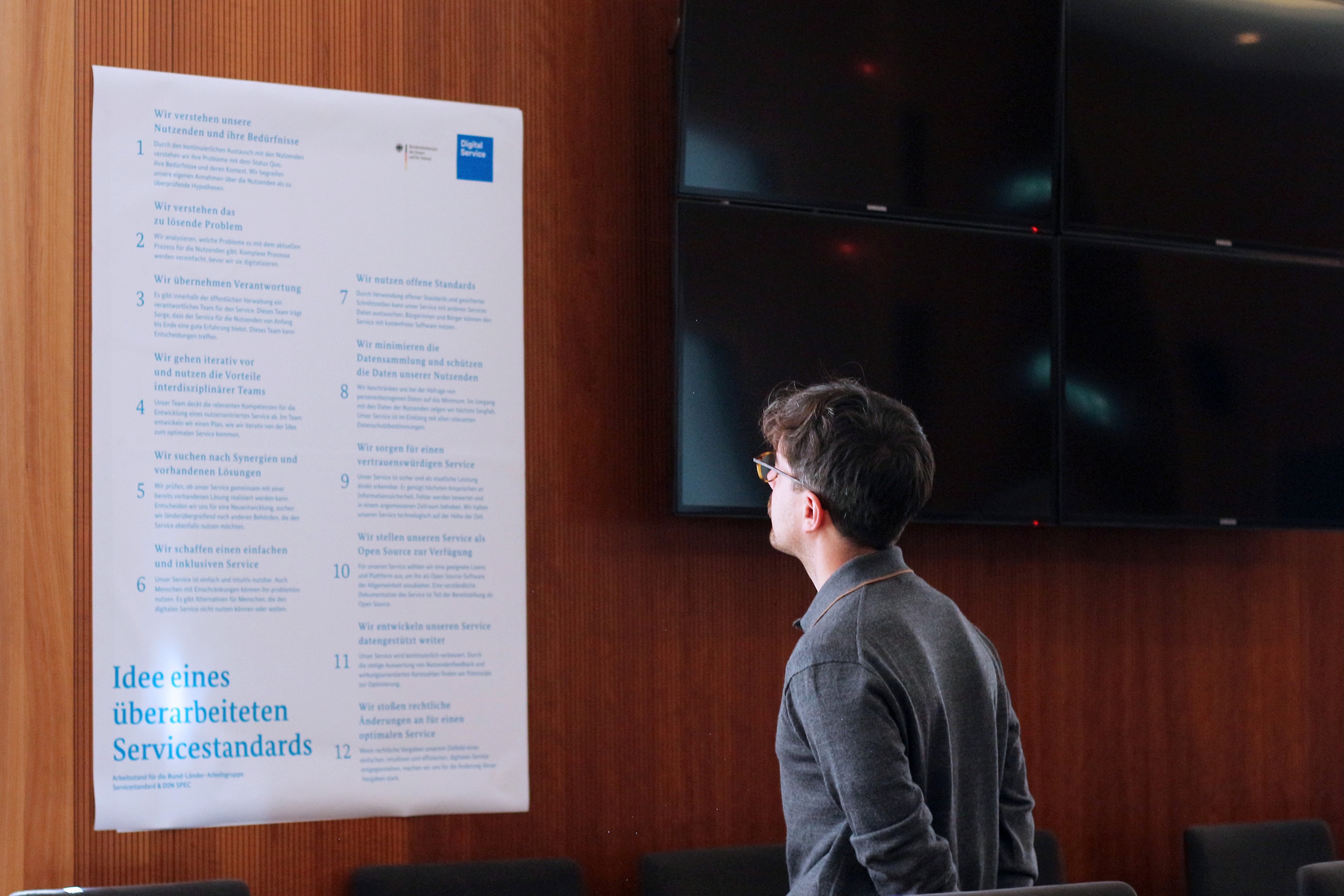

Servicestandard
Advancing quality standards for government online services
Good government online services do not come about by themselves, but are the result of a development process. This requires quality criteria that provide orientation and assistance – the Servicestandard for good government online services.
First in cooperation with the Federal Ministry of the Interior (BMI) and now with the Federal Ministry for Digital Transformation and Government Modernisation, we are therefore working on the further development of the quality criteria for the digitalization of administrative services in Germany. The aim is to optimize the service standard – originally created by the BMI in 2020 – with a view to its practical orientation and applicability and to disseminate it widely. The service standard is also compatible with the EU's European Interoperability Framework (EIF) in order to improve cooperation between administrations within Europe.
In March 2025, DIN SPEC 66336 “Quality requirements for online services and portals of public administration (Servicestandard) (Germany only)” was published, which for the first time sets out clear and verifiable quality requirements for the analysis, implementation, operation, and further development of government online services in 13 chapters.
Since the beginning of June 2025, servicestandard.gov.de (Germany only) has been available as a new practice-oriented resource. The website is continuously being expanded and brings together all relevant content in one place, from the DIN SPEC to learning content such as practical reports and instructions. The 13 quality criteria translate the complex requirements of the DIN SPEC into concrete measures. In this way, the Servicestandard accompanies the development and support of high-quality online services step by step.
In October 2025, the Ordinance on Standards for Online Access to Administrative Services (OZSV) came into force. It requires public administrations to comply with binding quality standards for digital services. The ordinance applies to services aimed at citizens and businesses and is intended to ensure that these services are understandable, easy to use, and reliable. The quality standards are considered met if DIN SPEC 66336 is followed. This specification defines the quality requirements relevant for implementing the ordinance. The Servicestandard supports administrative staff in putting these requirements into practice.
To ensure that the Servicestandard is practical and tailored to needs, we take a consistently participatory and collaborative approach. We involve users, experts and stakeholders at federal, state, and municipal levels, as well as representatives from business and civil society.
In our organization, we have been using the Servicestandard in our project work from the very beginning. We check the implementation of the quality criteria through self-audits and peer reviews. All previous Servicestandard reports can be found on our transparency page (German only).
Status: Live
Directly to the Servicestandard (German only)
Servicestandard on OpenCode (German only)
To the BMDS info page on the Servicestandard (German only)**
To the press release on the publication of DIN SPEC 66336 (German only)
To the press release on the launch of the “Servicestandard 2.0” project (German only)
Special features
- User-centered further development and content update of the 2020 Servicestandard
- Collaborative development process and active involvement of users and representatives from administration, science, business and civil society
- Further development of the Servicestandard in accordance with the applicable national and international guidelines and standards
Facts and figures

2024: Almost 60 interviews conducted with experts

DIN SPEC 66336 developed as a Servicestandard with a broad consortium of 54 people and 42 organizations

servicestandard.gov.de (beta) launched in June 2025, after just under ten weeks of development
Claudia Bülter, Head of Digital Development and Support, German Bundestag
With the Servicestandard, we are taking a big step towards user-centered, agile and modern administration! And we are delighted to be able to actively shape this change ourselves.
Read more about this project




